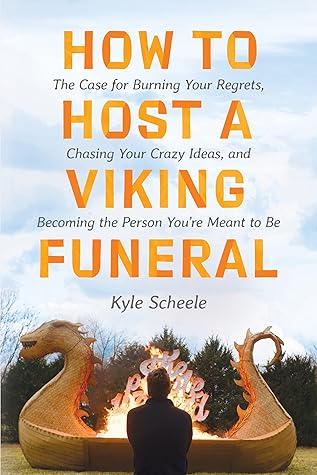More on this book
Kindle Notes & Highlights
First, I found that I was loved and supported by more people than I ever could have imagined.
Our comfort zones are the same way. It is their nature to contract. If we don’t stretch them out a little each day, eventually they lose their flexibility entirely, and it becomes extremely difficult to get them back to their original size.
I realized that my inadequacy did not have to be permanent. The fact that I didn’t know how to fix the ship today didn’t mean that I would never know how. It just meant that I had some work to do.
I do these things because I don’t want to look back and wish that I had. I don’t want to be that middle-aged guy who’s always talking about the great ideas he never tried.
When we look at the regrets from our past, they seem so powerful to us because we are convinced we are the only ones who carry these things. We don’t see the regrets our friends and family members carry, too. We don’t see the things our rivals and role models are burdened with.
A quesadilla is a grilled cheese sandwich because I say it is a grilled cheese sandwich, and I am an artist because I say I am an artist, and you are enough because you say you are enough. Others are free to disagree, but I’m not going to spend any of my time trying to defend my definitions, because they’re mine, and because every moment I spend trying to achieve consensus is a moment I won’t get back.
The thing I didn’t expect when I accepted people’s help was that they would enjoy it, that it would be fun for them, that they would get just as much out of the transaction as I did.
We can’t erase our pain or undo the things that people have done to us. But we can redeem the pain. We can learn from it.
That’s the hard thing about relationships: You only have control over one side. You cannot heal for another person. You cannot grow for another person. You cannot learn or regret or reach a realization for another person. You can only do those things for yourself.
Hikers learn to ask not “Can I carry this?” but rather “Do I need this? Does this serve me? Has it earned its place on my shoulders?” If an object doesn’t answer all of those questions in the affirmative, it is left behind.
This same thing happens to me every December when I do my year-end review. I’ll go back through my calendar, through my emails and social media posts and photographs, trying to remember all of the things that happened that year.
My hope for those who sent in their regrets is this: that in letting go of this thing that has held them back for so long, this belief or relationship or identity or experience or fear, they have made room in the lyrics of their song to focus on something better, something truer, something more reflective of the person they wish to be.


